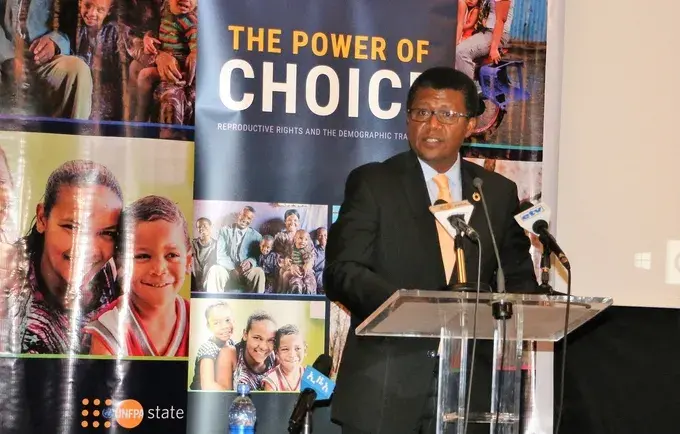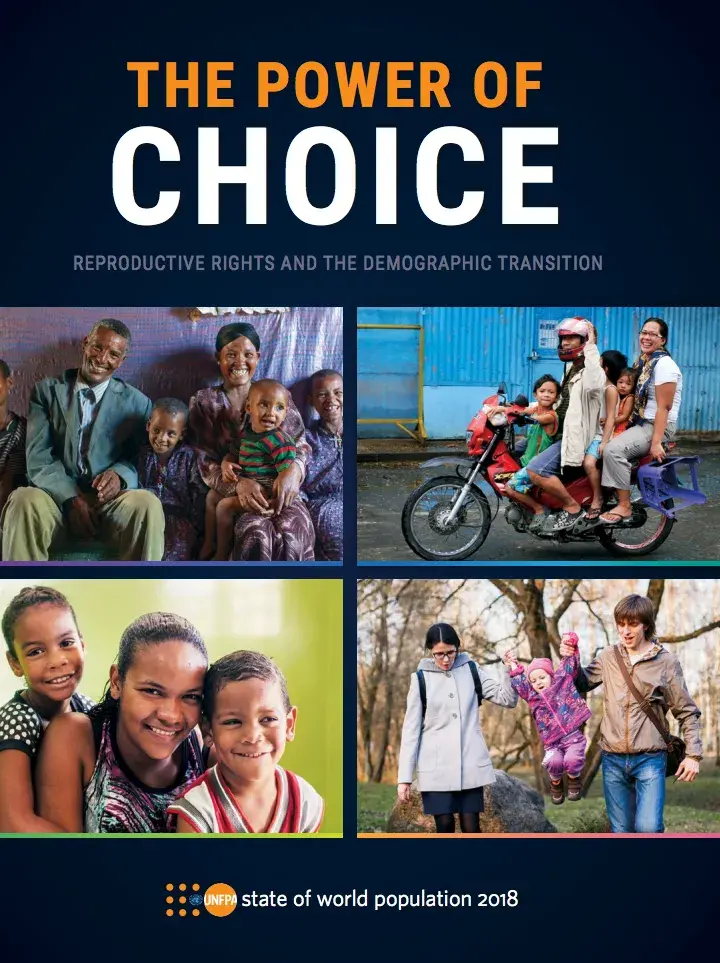All couples and individuals have the right to freely and responsibly decide the number and spacing of their children and to have the information, education and means to do so.
To Nyirahagenimana Bertha, a 33 years old mother of 4, who lives in Nyamasheke District, family planning was for old couples that have many children or for urban families who don’t want to have children, she never thought she would need it.
“Before using family planning methods, my life was not stable. I used to disregard all family planning information that was provided by health workers. I did not want to listen.Just 4 months after giving birth to my first born, I got pregnant again. We were not able to provide for two little babies. Life got so hard.”says Nyirahagenimana.
After giving birth to her first two children, she and her husband went through hard times with no source of income.They were one of the poorest families in the village. Always begging for food in the neighborhood.
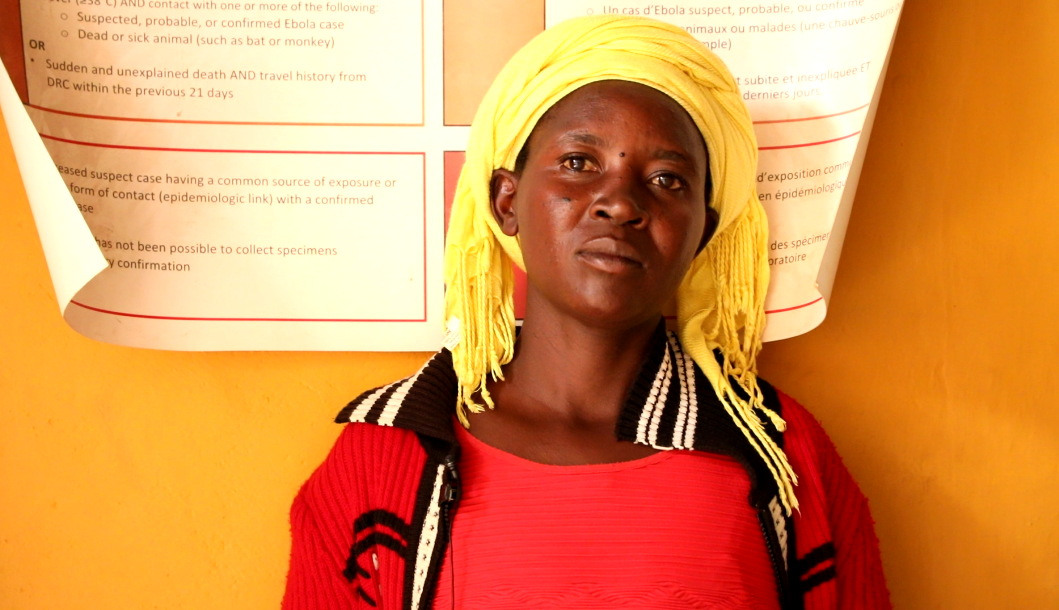
Nyirahagenimana Bertha, a 33 years old mother of 4 lives in Nyamasheke District,
“ After having my second child, and given the situation that birth got my family into, I decided to go to the health center for family Planning information and services. It has totally changed my life, we are now healthy and financially stable”
“We can now decide how many children we want to have and when to have them with the help of health providers'' she added.
Rwanda has made measurable success in bringing family planning information and accessibility to its citizens.When Nyirahagenimana decided to go to the health center , she got necessary information about family planning methods and was explained how it will improve her living conditions.
“At the health center, I discussed my situation with the person in charge of Family Planning. She took her time to explain to me the different methods of family planning, and told me that it is my right to choose which one I prefer. I went back home to discuss with my husband and together we agreed to take the 3 year method.” Said Nyirahagenimana.
“I cannot get the right words to explain how much we have achieved after the use of family planning. It improved our living conditions in every way, it saved my family” She added
After using Family planning for 6 years, Nyirahagenimana and her husband decided to have 2 more children, whom they have planned and saved money for. She is now celebrating her 12 years of using Family Planning methods, and the significant economic development her and the family have achieved.
“After 6 years, we were doing well, our two children were in school, and we continued to work hard to be able to take care of our family. We now have 4 children that we are able to raise. They are all grown and healthy.
Ten years ago, Nyamasheke District participation rate in family planning services was low, below 20% of the expected population in the District. Thanks to the hard work of health workers and easy access to information and services at the health centers, the participation rate has remarkably increased.
“Today the participation rate has increased to 60% thanks to integrated family planning discussions in all health services we provide here, the mentorship of services providers and the efforts made by the leaders to intensify family planning campaigns over the years.” stated Ndizihiwe Canisius, Head of Karengera Health Center, Nyamasheke District
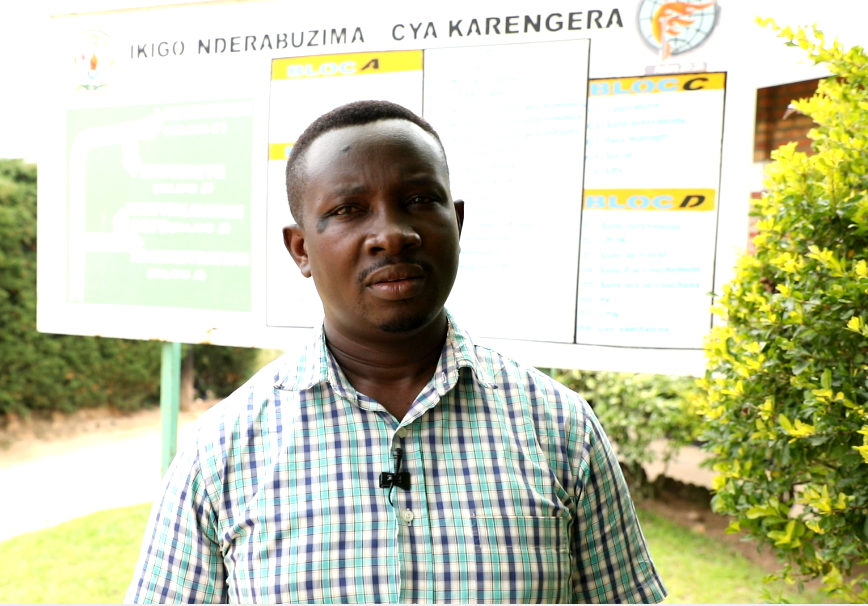
Ndizihiwe Canisius, Head of Karengera Health Center, Nyamasheke District
“It is a great achievement that currently family planning services are integrated in most of the services provided at the health centers, Today, every health center has a person in charge of family planning, a specific FP service room, and the management of health centers and hospitals are accountable to ensure the quality of the provided services, which was not the case in the past. ” Mukakabanda Suzanne, Family Planning Quality assurance Specialist / Rwanda Biomedical Center (RBC)
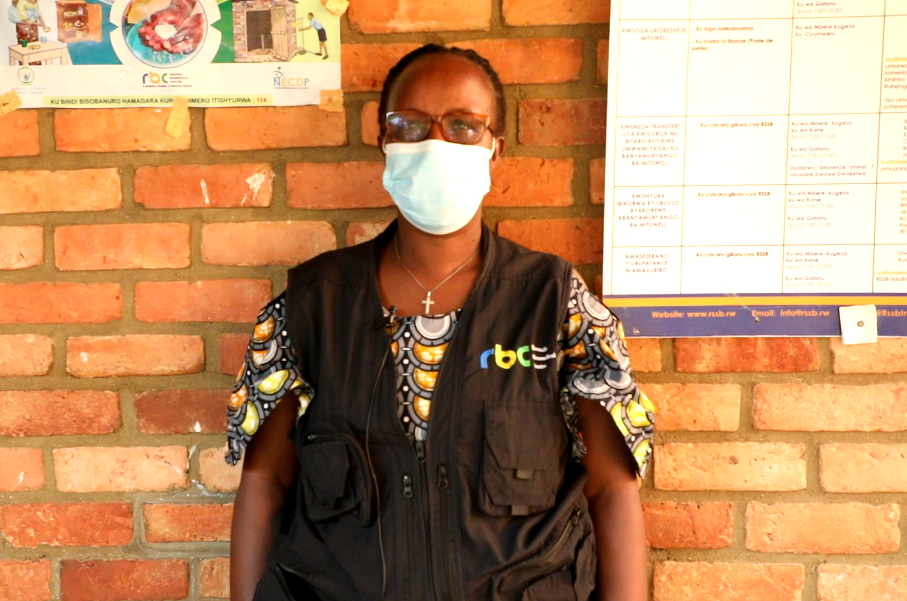
Mukakabanda Suzanne, Family Planning Quality assurance Specialist / Rwanda Biomedical Center (RBC)
Women have a fundamental right to decide if and when to have children, yet more than 222 million worldwide are unable to access modern contraception when they need it. UNFPA works in 151 countries across the globe to ensure access to safe, voluntary Family Planning is a human right and central to gender equality, women’s empowerment, and a key factor in reducing poverty.



